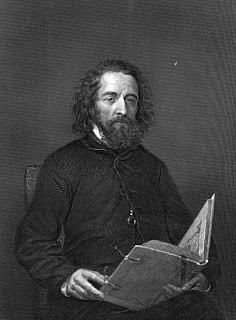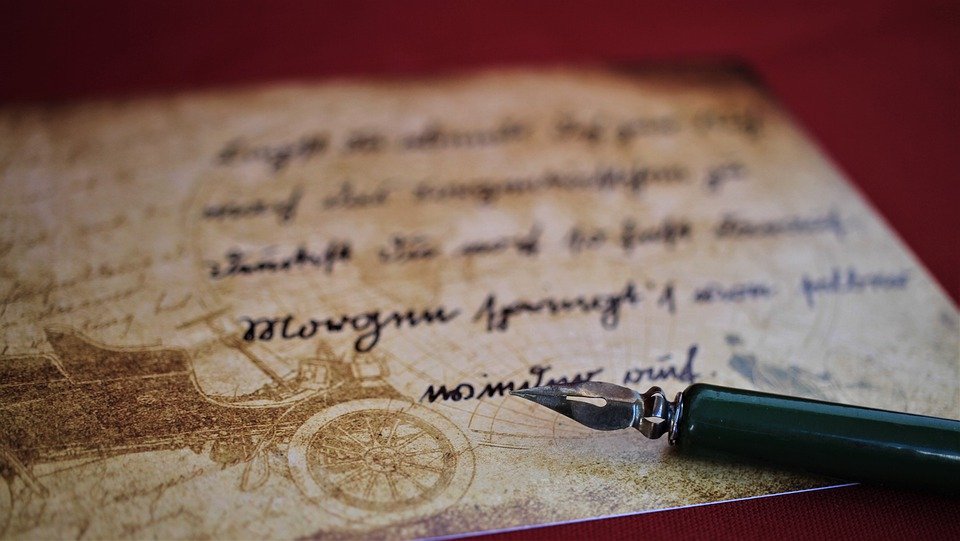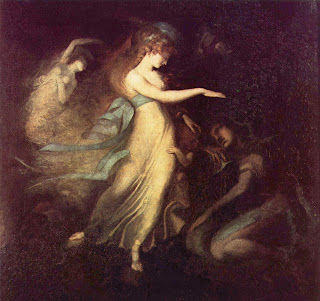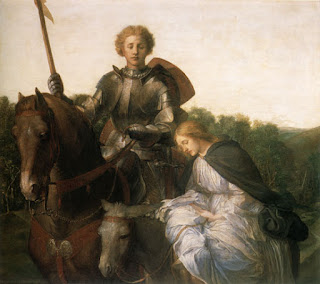 |
| Alfred Lord Tennyson |
Well, I have proven very predictable. Following my usual pattern for the Deal Me In Challenge of getting off to a great and very consistent start, I then quickly fell behind schedule. Do I care? Yes! I’m usually a very consistent person — a loyal friend, a hard worker, a steady blogger (yes, this is important too!) —- so it really bothers me when I don’t stick to a challenge. However, I have some very consistent blogger friends whom I won’t mention, whose dedication to challenges continually convicts me (oh okay, I will mention them —- O, I’m referring to you!), so with their gentle reminders, I’ve decided to pick up where I left off and hopefully get some momentum to finish this challenge well.
Finally, oh finally! I drew a poem, my first poem of the challenge so far in 11 choices. What are the odds of that? Perhaps I should buy a lottery ticket!
Written in 1847 as a song from one of his longer poems The Princess, Tears, Idle Tears, a lyric poem, was composed in blank verse and is said to be one of the few poems where Tennyson conveys his personal sentiments in his works. Tennyson claims he wrote it after a visit to Tintern Abbey, which was abandoned in 1536 and for him held “the passion of the past, abiding in the transient.” He said, it was “full for me of its bygone memories ……”
 |
Tintern Abbey
courtesy of Saffron Blaze
Source |
Tears, Idle Tears by Alfred Lord Tennyson
Tears, idle tears, I know not what they mean,
Tears from the depth of some divine despair
Rise in the heart, and gather to the eyes,
In looking on the happy Autumn-fields,
And thinking of the days that are no more.
Fresh as the first beam glittering on a sail,
That brings our friends up from the underworld,
Sad as the last which reddens over one
That sinks with all we love below the verge;
So sad, so fresh, the days that are no more.
Ah, sad and strange as in dark summer dawns
The earliest pipe of half-awaken’d birds
To dying ears, when unto dying eyes
The casement slowly grows a glimmering square;
So sad, so strange, the days that are no more.
Dear as remember’d kisses after death,
And sweet as those by hopeless fancy feign’d
On lips that are for others; deep as love,
Deep as first love, and wild with all regret;
O Death in Life, the days that are no more!
Wow! I remember really liking this poem when I was younger but now it seems all melancholy and sad and depressing. But really, should have I expected more from Tennyson based on my familiarity with one of this other poems (and one of my absolute favourites!), The Lady of Shallot? —- lots of crying out and isolation and cracking and curses …… no, why am I at all surprised?
So, now for my rather amateur analysis ……. the first aspect of the poem that stood out for me was his initial confusion. He doesn’t recognize the tears or connect them with anything at first. They come from deep within him. Does that highlight man’s propensity to live a rather shallow life? — to live in the moment without ever doing any deeper self-examination? And does it also highlight how capricious time is; that it slips away without us even noticing?
The autumn setting gives the poem a melancholy feel as summer has passed, and the passing of summer means less sunshine and happy times, and the death of leaves and greenery as the scenery turns from bright colours and greens to a burnished and faded scene.
Regret is an obvious theme and Tennyson takes us to the underworld, which I assume is really the memories of the dead whom he loved, yet these memories bring him sadness. He is not focusing on the happiness experienced during those times, but the loss of them.
These memories now seem very far away to him, so much so that the very experiences he participated in now appear strange to him. The casement is shrinking in his vision, perhaps the approach of death?
At least, he feels the memories are dear and sweet, but he acknowledges the death of those times, a death that has happened before he himself has died. There is nothing uplifting in his remembrance.
 |
Farringford, Tennyson’s residence of the Isle of Wright
source Wikipedia |
Good heavens! Yes, lots of tears and despair and sinking and sadness and strangeness and dying. It would be fascinating to travel back in time and find out just what was going on in Tennyson’s life and head when he wrote it.
Next up for my Deal Me In Challenge is a children’s classic called Teddy’s Button by Amy LeFeuvre.
















